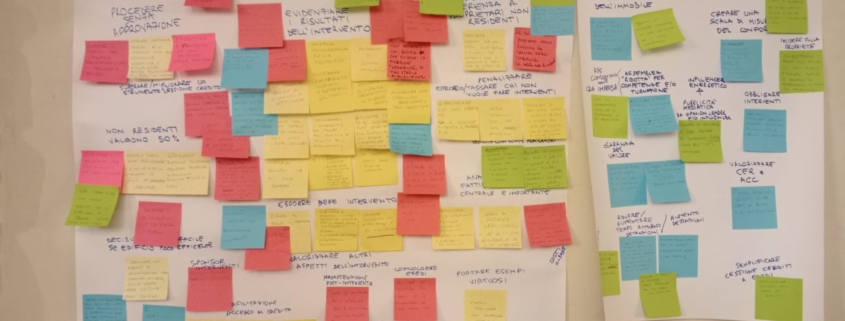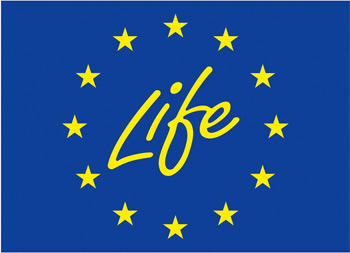The Report of the “Italian Ecosystem Meeting – Dialogue on Energy efficiency” is now available
At the end of the activities related to the energy efficiency upgrading of condominiums within European project Life PrepAir, the event “Italian Ecosystem Meeting – Dialogue on Energy Efficiency” took place in Trento on 13 February, as part of the EEMI Bauhaus week entitled “Combining smart digital & sustainable solutions to change the market paradigm”.
The event, in which all the categories of the building redevelopment supply chain were invited, focused on the green mortgage market: financial products that reward the most efficient interventions and the green supply chain, in order to guarantee an effective system that supports the client to carry out energy efficiency interventions in their homes.
The conference has been designed as a workshop: after a brief introduction, a four working tables’ session was organised to address the current ‘bottlenecks’ and stimulate the search for solutions, all with a view to unlock the redevelopment process of the existing building stock.
Several proposals emerged from the working tables, which can be resumed in three main areas.
As far as the decision-making process is concerned, it was considered very important for tenants to be aware of their consumption and to be trained accordingly. This makes it possible to orientate behaviours both in a dwelling to be redeveloped and in a redeveloped one. Moreover, the knowledge of consumption in real time can help change habits and understand the costs of different habits.
For the consumption part related to redevelopment, much importance is given to a clear identification of the savings that will be achieved at the end of the works, and once the works are finished, it is advisable to monitor consumption both in comparison with the planned and with other similar types of buildings.
The need to involve non-tenant owners, who may be less interested in carrying out the work, and weaker parties, such as families with financial difficulties or the elderly, was emphasised. A central figure in the process is certainly the administrator, who must be properly trained and motivated. In addition, the energy performance certificate must necessarily be closer to actual consumption: there is no point having a good energy performance certification if you then consume more than expected. Finally, it is important to pay attention to the topic of energy communities and shared energy.
Regarding financing, numerous proposals were made on possible ways to support expenditure, with a wide range of financing possibilities: Energy Performance Contracts (EPC) and more generally repayment of installments through the savings achieved, transfer of the tax credit and the possibility of immediately receiving the amount of tax deductions, flexible credit recovery (with different installments and deductions depending on the possibilities of expenditure and other parameters such as age, assets, etc.), guarantee funds, loans for redevelopment with reduced rates depending on the results, crowdfunding, etc.
Finally, as far as concern experts and companies, beyond specific and certified training, it has been deemed fundamental that it be possible to vote for them publicly; it has also been proposed to facilitate collaboration between companies for a turnkey service.
Download the conference report here (in italian)




